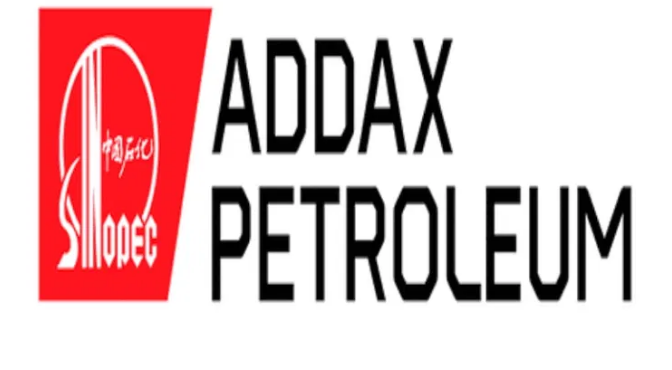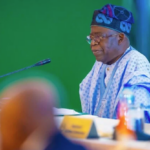Addax: How Buhari Reinforced Sino-Nigerian Partnership

In today’s borderless world, there are considerable international interactions at various levels. The difference in the value systems and diversity makes ethics in international relations imperative. Ethics works by granting and withdrawing legitimacy.
History shows that the mitigation and cessation of unjust practices ultimately comes from the assertion of core values. The end of slavery began with various revolutions and rebellions – yet the source of its ultimate demise was its loss of moral legitimacy. Ditto for communism: the Soviet Union collapsed when the values that held it together were no longer credible and sustainable. Its legitimacy evaporated.
The ethical approach in international affairs reflects conscience, principle, responsibility, and restraint in decision-making. It helps prevent undue conflicts and provides an ecosystem of mutual trust and goodwill among nations. Perhaps not surprisingly, some of the most common ethical issues in international affairs include trust and integrity.
Despite the often incendiary flak against the Muhammadu Buhari Presidency, it must be acknowledged and lauded when he takes an important stand and makes a positive milestone decision. The President’s enlightened intervention to reverse the misapplication of authority and miscarriage of justice in the matter of needless revocation by the Department of Petroleum Resources (DPR) of four oil leases operated by Addax Petroleum Exploration Nigeria Ltd. is a good example of a bold ethical stand.
Clearly, an awareness of this ethical necessity must have informed President Buhari executive action. This is because to build virile, sustainable national institutions, uphold due process in diverse arenas, respect international obligations and grow the nation’s economy, the sanctity of contracts must be respected.
Addax Petroleum was established in 1994 and since August 2009 has been a subsidiary of the Sinopec Group, one of the largest oil and gas producers in China, the biggest oil refiner in Asia and the third largest worldwide.
It could be recalled that the Federal Government, through the Department of Petroleum Resources (DPR), erroneously revoked the four OMLs belonging to Addax Petroleum, alleging the company’s inability to comply with targets. About three weeks ago, a committee set up to investigate Addax submitted a report, wrongly accusing the petroleum company of “economic waste.”
The committee led by a former Senator, Magnus Abe, said $1 billion had been invested in the contract but that Addax Petroleum called it off over an issue that was totally unrelated to the project. It spuriously alleged that the action put over 3000 Nigerians out of work, the committee said.
Shortly, like an entity working towards a preset agenda, the DPR inaugurated a team to evaluate the “revoked assets” of Addax Petroleum Exploration Nigeria Ltd. DPR’s spokesperson, Paul Osu then told Nigerians that,
DPR had recently revoked the four assets of Addax Petroleum Exploration Nigeria Ltd., namely OMLs 123, 124, 126 and 137 due to the non-development of the assets by the company.
He further stated that a team of experts will evaluate the current status (As-is) of the revoked assets, including liabilities post revocation, in order to facilitate takeover of the assets by the new operators – Kaztech/Slavic Consortium. New operators? But the whole contrived game fell through with the President’s swift intervention.
President Buhari handed down an executive approval for restoration of the leases on OMLs 123, 124, 126 and 137 to the Nigeria National Petroleum Corporation (NNPC) which is in Production Sharing Contract (PSC) with Addax Petroleum, on Friday, April 23 2021. Mallam Garba Shehu, the Senior Special Assistant to the President on Media and Publicity, confirmed the development in a statement in Abuja.
According to Shehu, the restoration of the OMLs to Addax Petrleum was in line with the current administration’s commitment to the rule of law, fairness and enabling a stable business climate for investment. He stressed that the development reaffirmed the commitment of the Buhari administration to the rule of law and sanctity of contracts and quoted the President as directing DPR to retract the letter of revocation of the leases.
More, leaning on the ethical path, the President also directed NNPC to utilize contractual provisions to resolve issues in line with the extant provisions of the Production Sharing Contract arrangement between NNPC and Addax.
Hear the Presidential:
The restoration of the blocks to NNPC will boost the organisation’s portfolio, thereby making the corporation to, in the long run, boost its crude oil production and in turn increase the revenue it generates to the Federation Account.
Were the flawed revocation allowed to stand the federal government would have effectively shot itself in the foot by dishonoring its contractual obligation to Addax. But clearly the President was far better informed on the issues at play. This is especially so, as already Nigeria has a poor reputation with respect to adherence to the rule of law and sanctity of contracts which the circumspect President Buhari administration has been making efforts to correct.
Worse, the special bilateral relationship, Nigeria enjoys with the Peoples Republic China, the owner of Addax Petroleum, would have suffered immeasurably. Federal agencies like the Federal Ministry of Finance and National Planning, Debt Management Office, Federal Ministry of Foreign Affairs and others can attest to the level of strategic engagement Nigeria shares with China.
Perhaps, many may not know that China, the world’s second largest economy, is playing an important role in Nigeria’s current development trajectory. Despite shrill, often uninformed criticism against borrowing from China, much of the grounds covered in infrastructural development are undergirded by Chines funds.
China’s GDP in 2020 was $15.66 trillion, second to only the US GDP of $20.81 trillion for the same period. Nigeria’s GDP for 2020 was $443 billion. Against this backdrop, cooperation rather than needless provocation is the way to go in the Sino-Nigerian bilateral relations.
According to the Consul General of the People’s Republic of China, Chu Maoming,
China firmly supports Nigeria in pursuing development path that suits national conditions.
He described Nigeria and China as
major developing countries of great influence in the world,
noting that the two countries could collaborate in different spheres for the benefit of their citizens and the rest of the world.
Further according to him,
The breadth, depth, and growth of China-Nigeria economic and trade cooperation have surpassed that of any previous period. Now, it’s time to combine our efforts to raise the level and quality of our cooperation. China stands ready to facilitate more imports from Nigeria. We also welcome the Nigerian side to do more promotion of its products and increase its market share in China.
We have huge potential for investment cooperation, which is highly complementary, especially in the field of energy, resources, and infrastructure. We need to develop and tap this cooperation potential.
In September 2019, a member of the Political Bureau of the Central Committee of the Communist Party of China (CPC) and Director of the Office of the Foreign Affairs Commission of the CPC Central Committee, Yang Jiechi, paid a visit to Nigeria and was warmly welcomed by His Excellency, President Buhari. The Sino-Nigerian relationship can only get better and certainly can do without the kind of puzzling, needless, controversial revocation of Addax Petroleum, a key Chinese petroleum upstream entity’s oil leases.
Clearly, the ethical approach in Nigeria’s engagement of its Chinese partner as well as in wider international affairs must reflect conscience, principle, responsibility, and restraint in decision-making. This strategy as President Buhari has adroitly demonstrated, helps prevent undue conflicts and provides an ecosystem of mutual trust and goodwill among nations.
It is no secret that petroleum export is the mainstay of the Nigerian economy and the major source of revenue for the country.
The sector also contributes over 80 and 70% of export earnings and total government revenue, respectively. Currently, most of the nation’s domestic petroleum products needs are met through importation, as the domestic refineries are not capable of supplying enough to meet the ever growing demand.
Against this backdrop, unethical policy moves in the critical sector could undermine economic progression and the transformation agenda of the current administration. The abrupt revocation of Addax Petroleum oil leases and re-awarding them to other entities is a case in hand and do not serve the best interest of the nation.
Had the President not been as firm as he demonstrated, it could best be imagined what muddle and international tension the DPR would have needlessly caused. The move by DPR which had the potential of alienating china or harming the warm relationship with the Asian giant would have been a disaster to Nigeria and put promising bilateral relations with other nations on edge.
Beyond the energy sector, China plays significant roles in Nigeria’s other critical sectors like manufacturing, transportation, agriculture, road construction and many more. Provoking the Asian behemoth with curious knee jerk policies whether in the energy or other industrial sectors will bode ill for the nation’s economic development. By executive restoration of Addax Petroleum’s hastily revoked four oil mining licenses President Buhari has made a bold, commendable ethical statement and sent a powerful signal to the world that in Nigeria, the sanctity of contracts holds firm.

Justin Nwosu is the founder and publisher of Flavision. His core interest is in writing unbiased news about Nigeria in particular and Africa in general. He’s a strong adherent of investigative journalism, with a bent on exposing corruption, abuse of power and societal ills.













